Best Dry Eyes Treatment in Kalyan
Why Patients Trust Radhakrishna Netralay–In Their Own Words
Our 3-Step Best Dry Eyes Treatment in Kalyan at Radhakrishna Netralay, Kalyan East
At Radhakrishna Netralay in Kalyan East, our expert ophthalmologists follow a structured 3-step approach to provide advanced and effective dry eyes treatment. Recognized for offering the Best Dry Eyes Treatment in Kalyan, we focus on accurate diagnosis, personalized therapy, and long-term eye comfort for conditions such as dry eye syndrome, chronic irritation, redness, and discomfort.
Comprehensive Dry Eye Evaluation
We use modern diagnostic tools such as tear film analysis, ocular surface staining, and Schirmer’s test to assess tear production and eye surface health, ensuring precise diagnosis.
Personalized Dry Eye Treatment Plan
Our specialists create a customized plan including lubricating eye drops, medications, punctal plugs, lifestyle guidance, or advanced therapies like intense pulsed light (IPL) to relieve dryness and restore eye comfort.
Ongoing Monitoring & Eye Care
Dry eyes require follow-up. We provide regular checkups, imaging, and guidance to monitor improvement, prevent complications, and maintain long-term eye health with expert care.
Dry Eyes Treatment Success Stories at Radhakrishna Netralay – Best Eye Hospital in Kalyan
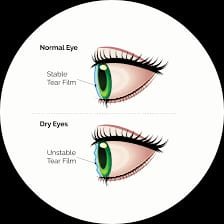
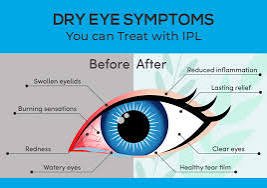
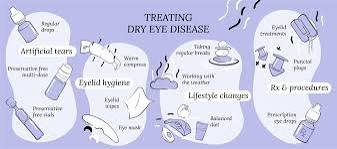
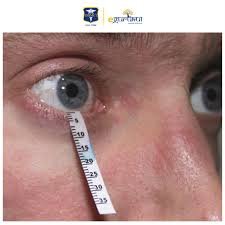
Why Choose Radhakrishna Netralay for Best Dry Eyes Treatment in Kalyan ?
Adequate tear quality and quantity are essential for healthy, comfortable eyes. Dry eye syndrome occurs when the tear film layers—oily, aqueous, and protein—are disrupted. Common causes include air conditioning, low humidity, and environmental changes, which increase tear evaporation and reduce eye lubrication.
Evaporative dry eyes can lead to irritation, redness, inflammation, and even an increased risk of infections, potentially affecting vision. At Radhakrishna Netralay in Kalyan, our expert ophthalmologists provide the best glaucoma treatment in kalyan to restore tear balance, improve eye comfort, and protect long-term vision. We also offer advanced services such as the best cataract surgery in Kalyan , ensuring complete and comprehensive eye care under one roof.
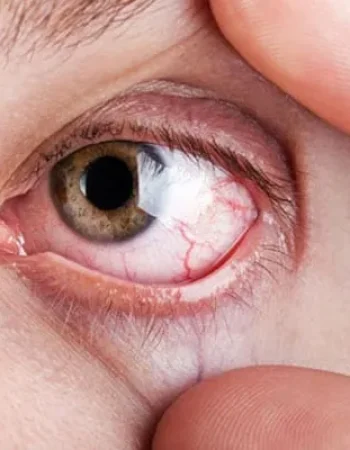
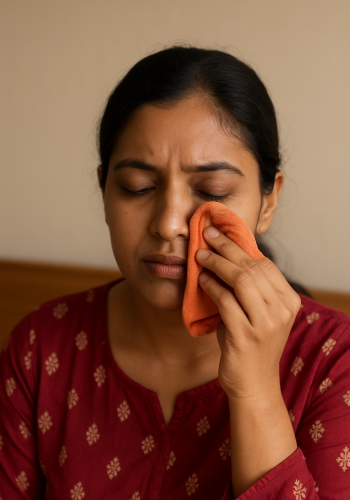
Best Dry Eyes Treatment in Kalyan
Adequate tear quality and quantity are essential for comfortable, healthy eyes. Dry eye syndrome occurs when the three layers of the tear film—oily (outer), aqueous/water (middle), and protein (inner)—are disrupted. Common causes include air conditioning and low-humidity environments, which increase tear evaporation and reduce eye lubrication.
Prolonged exposure to such conditions can also affect lipid production in the eyelid glands, further disrupting the tear film’s quality and quantity. Inadequate tears make eyes more prone to irritation, redness, inflammation, infections, and potential vision problems.
At Radhakrishna Netralaya in Kalyan, our experienced ophthalmologists provide the Best Dry Eyes Treatment in Kalyan, offering advanced solutions to restore tear balance, relieve discomfort, and protect long-term eye health.
Other Causes of Dry Eye Syndrome
Dry eye syndrome can also result from prolonged screen use (Computer Vision Syndrome), natural aging—especially in women during menopause—certain medical conditions like diabetes, thyroid disorders, and Vitamin A deficiency, or side effects of medications such as antihistamines.
Other contributors include laser eye procedures (usually temporary), tear gland damage from inflammation or radiation, diseases affecting tear production like Sjogren’s syndrome, rheumatoid arthritis, and collagen vascular diseases, eyelid closure problems, and environmental factors like air pollution. People in metro cities such as Mumbai, Delhi, Kolkata, and Chennai are at higher risk due to increased exposure to pollutants. For individuals experiencing persistent irritation or dryness due to these conditions, our hospital also provides advanced cornea treatment in Kalyan , ensuring proper diagnosis and long-term protection of ocular surface health.
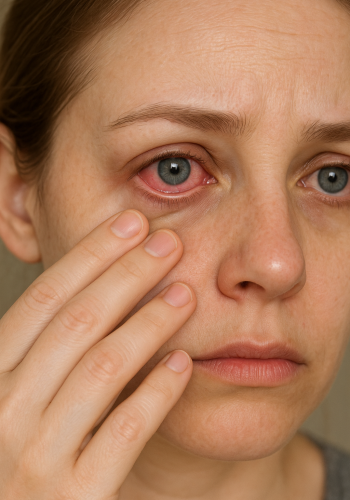
Major Symptoms of Dry Eyes
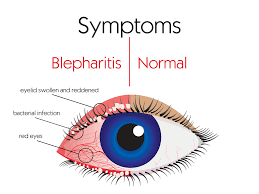
Common symptoms of dry eyes and dry eye syndrome include burning, dryness, grittiness, itchiness, aching or heavy sensations, watering, and blurred vision. Reading speed and visual clarity may also decrease as the severity of dry eyes increases.
Computer Vision Syndrome
Dry eye syndrome can also result from prolonged screen use (Computer Vision Syndrome), natural aging—especially in women during menopause—certain medical conditions like diabetes, thyroid disorders, and Vitamin A deficiency, or side effects of medications such as antihistamines.
Other contributors include laser eye procedures (usually temporary), tear gland damage from inflammation or radiation, diseases affecting tear production like Sjogren’s syndrome, rheumatoid arthritis, and collagen vascular diseases, eyelid closure problems, and environmental factors like air pollution. People in metro cities such as Mumbai, Delhi, Kolkata, and Chennai are at higher risk due to increased exposure to pollutants.

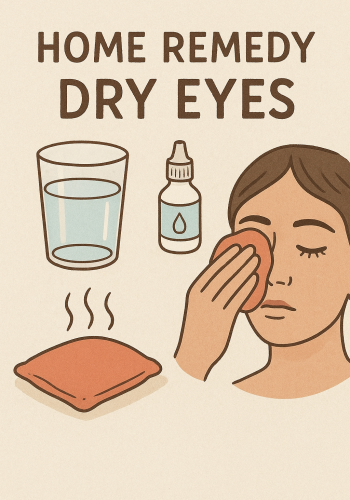
6 Effective Home Remedies for Dry Eyes
✅ Artificial Tears: Use over-the-counter lubricating eye drops to relieve dryness and irritation.
✅ Warm Compress: Apply a warm, damp cloth to unclog blocked oil glands.
✅ Hydration: Drink plenty of water to keep eyes and body hydrated.
✅ Limit Screen Time: Take frequent breaks to reduce eye strain.
✅ Blink Regularly: Maintain proper blinking, especially during reading or device use.
✅ Humidify Your Environment: Use a humidifier to keep indoor air moist and prevent dry eyes.
Why Choose Radhakrishna Netralay for Dry Eyes Treatment in Kalyan?
✅ Experienced Ophthalmologists in Kalyan East
✅ Advanced diagnostic tools: tear film analysis, Schirmer’s test, ocular surface evaluation
✅ Personalized treatment plans: artificial tears, medications, IPL therapy, lifestyle guidance
✅ Trusted eye hospital with a patient-first approach
✅ Serving patients from Kalyan, Dombivli, Ambernath, and nearby areas
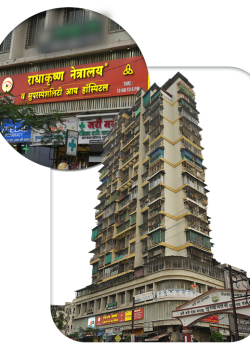
Visit the Best Eye Hospital in Kalyan East for Dry Eyes Treatment
If you’re experiencing dry eyes, irritation, redness, or discomfort affecting your vision, don’t wait. Consult our expert ophthalmologists in Kalyan today. Early diagnosis and advanced dry eye treatments can restore comfort and protect long-term eye health.


